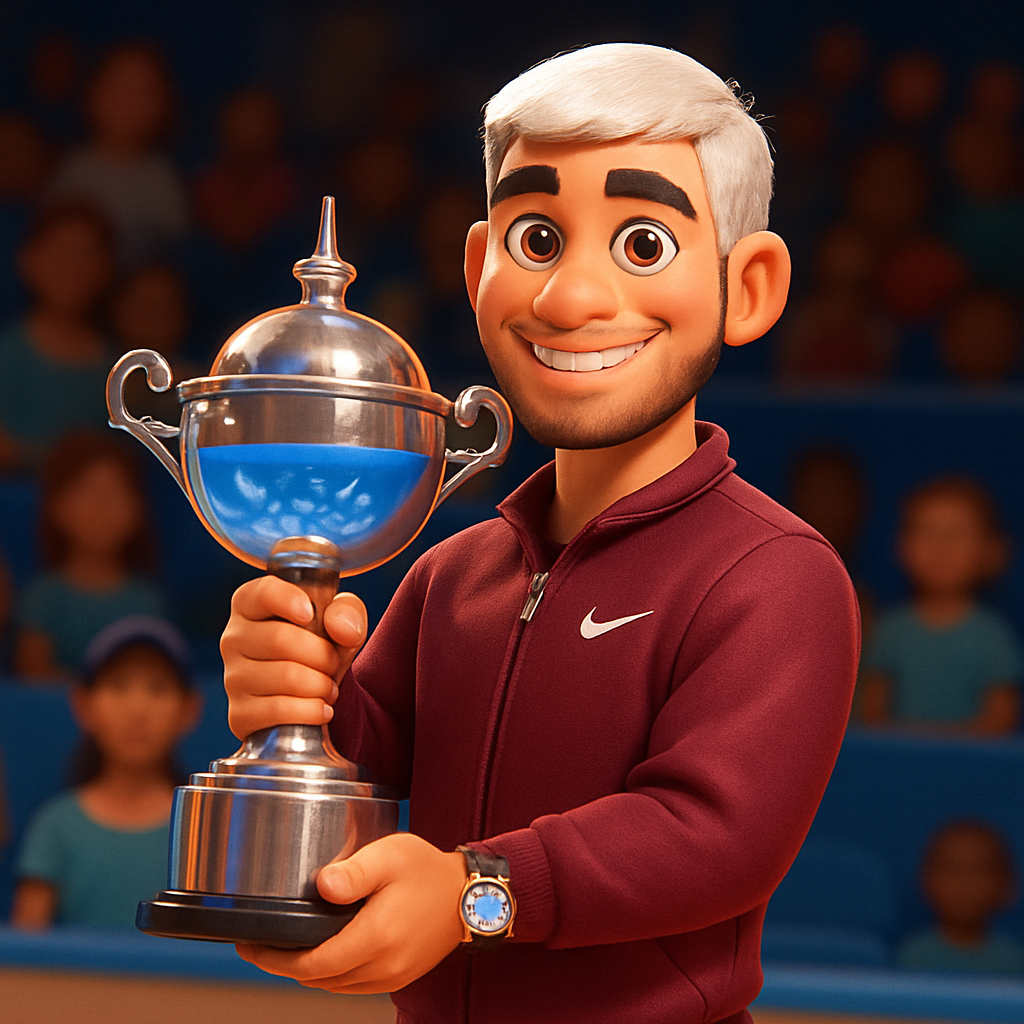TOKYO — Fresh off his commanding victory at the 2025 Rakuten Japan Open Tennis Championships, Spanish sensation Carlos Alcaraz finds himself in an unfamiliar and uncomfortable position: the center of a growing debate about athlete wealth. While fans in Tokyo celebrated his powerful baseline game and infectious on-court charisma, a vocal minority of critics took to social media and sports talk shows, accusing the young champion of prioritizing financial gain over pure sporting integrity.
The controversy was ignited by a pointed commentary from veteran tennis analyst, Roger Finch, who stated on his popular podcast, "We are witnessing the corporatization of a prodigy. The relentless brand-building, the constant appearance in glossy adverts—it feels less like a champion's journey and more like a calculated campaign to fatten his wallet."
A Meteoric Rise in Net Worth
At just 22 years old, Alcaraz's financial trajectory is as staggering as his athletic rise. From his first major payday at the 2022 US Open, his net worth has exploded. Conservative estimates from sports financial publications now place his total wealth in the range of $40-50 million. This figure is a composite of:
- Prize Money: Over $30 million in career winnings, placing him firmly in the top echelon of all-time earners.
- Endorsements: Lucrative, long-term deals with global giants like Nike, Babolat, and Rolex.
- Appearances & Investments: High-value exhibition fees and a growing, diversified investment portfolio.
His agent, Albert Molina, has been widely praised in business circles for his aggressive and savvy negotiation tactics, securing for Alcaraz one of the most valuable endorsement portfolios in all of sports, often compared to the early-career business moves of Roger Federer and Naomi Osaka.
The "Fattening the Wallet" Critique
The core of the criticism lies in the perception that Alcaraz's off-court commitments are becoming a distraction. Detractors point to his packed schedule of commercial shoots and public appearances, suggesting it may be a factor in the occasional dips in form and minor injuries that have briefly sidelined him. "Is he a tennis player or a brand ambassador who plays tennis on the side?" one prominent tennis forum user questioned.
This sentiment was echoed by former French Open champion, Henri Leconte, in a recent television segment: "Carlos is a magnificent player, a true artist. But I worry. The pressure to maintain this global brand, to be everywhere at once... it is a heavy burden that we did not have in the same way. The risk is burnout, not from tennis, but from the business of tennis."
A Question of Balance
The debate often centers on an age-old dilemma in professional sports: finding the balance between athletic performance and commercial opportunity. Alcaraz's supporters argue that he is simply capitalizing on a short career window and that his joyful demeanor makes him a natural and deserving fit for global stardom.
In a press conference following his Tokyo win, Alcaraz addressed the comments directly, though without naming his critics: "I play tennis because I love it. This is my passion since I was a kid. The other things, they come because I win, because I try to bring good energy. For me, the most important thing is the racket and the ball. Everything else is part of the journey, but the heart is always on the court."
The Business of Being Alcaraz
A deeper look into Alcaraz's business operations reveals a carefully structured team designed to manage his empire without overwhelming him. His inner circle, led by his father Carlos Alcaraz Gonzalez and agent Molina, is known for its discipline. They are strategic in their partnerships, reportedly turning down more deals than they accept to ensure alignment with Alcaraz's authentic image and to protect his training time.
Industry insiders note that his marketability stems from a rare combination of youth, a thrilling playing style, and a universally likable personality. A marketing executive for one of his sponsors, who spoke on condition of anonymity, stated, "Carlos isn't just selling shoes or watches; he's selling joy and relentless passion. That is an incredibly powerful brand."
The Other Side of the Coin: Generosity and Roots
Often omitted from the criticism is Alcaraz's significant philanthropic work. He has invested heavily in his hometown of El Palmar, Murcia, funding the modernization of local tennis facilities and creating a foundation to provide opportunities for underprivileged children to play sports. His commitment to his roots is frequently highlighted by Spanish media, painting a picture of a grounded individual despite his global fame.
Juan Carlos Ferrero, Alcaraz's coach and a former world number one, vigorously defended his protégé: "People see the commercials and think they know the story. They don't see the 6 a.m. workouts, the sacrifice, the focus. Carlos's priority is always, always tennis. The rest is a consequence of his excellence and his character. To suggest otherwise is ignorant."
The Verdict: Fair Criticism or Unfair Scrutiny?
The accusations against Alcaraz highlight a modern paradox in sports fandom. Audiences celebrate athletes who achieve monumental wealth and fame, yet can become suspicious when those athletes successfully navigate the business opportunities that fame affords. The line between "ambitious professional" and "greedy mercenary" is often drawn subjectively.
As the ATP tour moves to its next stop, the conversation continues. Is Carlos Alcaraz a victim of his own success, facing scrutiny simply for being exceptionally good at both his sport and the business that surrounds it? The numbers—both his ranking and his net worth—suggest a young man operating at the peak of his powers in every conceivable arena.
Ultimately, his performance on the court remains the primary metric. With the Tokyo trophy now in his possession and his sights set on the season-ending ATP Finals, Alcaraz seems to be proving that, for him at least, a healthy wallet and a healthy winning record are not mutually exclusive but fundamentally intertwined in the life of a modern sporting icon.

